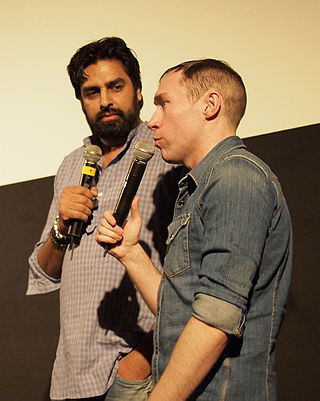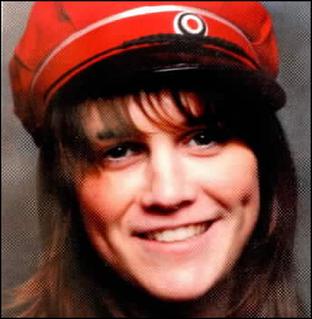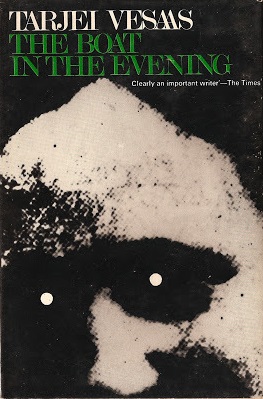Related Research Articles

Norwegian is a North Germanic language from the Indo-European language family spoken mainly in Norway, where it is an official language. Along with Swedish and Danish, Norwegian forms a dialect continuum of more or less mutually intelligible local and regional varieties; some Norwegian and Swedish dialects, in particular, are very close. These Scandinavian languages, together with Faroese and Icelandic as well as some extinct languages, constitute the North Germanic languages. Faroese and Icelandic are not mutually intelligible with Norwegian in their spoken form because continental Scandinavian has diverged from them. While the two Germanic languages with the greatest numbers of speakers, English and German, have close similarities with Norwegian, neither is mutually intelligible with it. Norwegian is a descendant of Old Norse, the common language of the Germanic peoples living in Scandinavia during the Viking Age.
Nynorsk is one of the two official written standards of the Norwegian language, the other being Bokmål. From 12 May 1885, it became the state-sanctioned version of Ivar Aasen's standard Norwegian language (Landsmål), parallel to the Dano-Norwegian written standard known as Riksmål. The name Nynorsk was introduced in 1929. After a series of reforms, it is still the written standard closer to Landsmål, whereas Bokmål is closer to Riksmål and Danish.

Jon Olav Fosse is a Norwegian author, translator, and playwright. In 2023, he was awarded the Nobel Prize in Literature "for his innovative plays and prose which give voice to the unsayable."
The Language Council of Norway is the administrative body of the Norwegian state on language issues. It regulates the two written forms of the Norwegian language: Bokmål and Nynorsk. It was established in 2005 and replaced the Norwegian Language Council which existed from 1974 to 2005. It is a subsidiary agency of the Ministry of Culture and has forty-four employees. It is one of two organisations involved in language standardization in Norway, alongside the Norwegian Academy.

Jonas Gahr Støre is a Norwegian politician who has served as the 36th and current Prime Minister of Norway since 2021. He has been Leader of the Labour Party since 2014. He served under Prime Minister Jens Stoltenberg as Minister of Foreign Affairs from 2005 to 2012 and as Minister of Health and Care Services from 2012 to 2013. Støre has been a Member of the Storting for Oslo since 2009.

Zahid Ali is a Norwegian stand-up comedian. Debuting in 1999, Ali has ventured into presenting, acting, and writing for various prominent film, TV, and stage projects. He is known for his participation in the TV2 show Rikets Røst, which is hosted by Otto Jespersen. After the publicity this show resulted in, he has become a popular comedian and actor.

Carl Frode Tiller is a Norwegian author, historian and musician. His works are in Nynorsk, one of the two official Norwegian standard languages.

The Brage Prize is a Norwegian literature prize that is awarded annually by the Norwegian Book Prize foundation. The prize recognizes recently published Norwegian literature.
The Nynorsk Literature Prize is awarded annually by Noregs Mållag, Det Norske Teatret and Det Norske Samlaget for the best book in either Nynorsk or dialect. The award is presented for the best novel, poetry, novellas, or drama in the past year.

Kaja Bordevich Ballo was a Norwegian university student who took her own life in Nice, France, on March 28, 2008, shortly after taking an Oxford Capacity Analysis (OCA), a personality test administered by the Church of Scientology, earlier the same day. Family and friends state that Ballo was happy prior to taking the OCA, and that her mood dramatically shifted after receiving the results; she jumped from the fourth floor of her dorm room hours later. In addition to a suicide note, Ballo's family found the OCA among her belongings. French police investigated connections between Scientology and Ballo's death, and interviewed two leaders of the Church of Scientology in France; prosecutors stated in December 2008 that they were unable to establish a causative link.

The 2013 Valdresekspressen hijacking was a hijacking of an express bus running on the Nor-Way Bussekspress Valdresekspressen route, which took place east of Øvre Årdal on 4 November 2013. The driver and both passengers were killed.

The Boat in the Evening is a 1968 novel by the Norwegian writer Tarjei Vesaas. It has a fragmentary and meditative narrative which centres on a child who observes a crane colony perform its breeding ritual. It was the author's final book. It was published in English in 1971, translated by Elizabeth Rokkan.
Nightsongs is a 1997 play by the Norwegian writer Jon Fosse. It tells the story of a young couple who just had their first child. The man tries to become a writer but is constantly rejected by publishers while the woman is growing tired of their situation. The play premiered in 1997 at Rogaland Teater in Stavanger, directed by Kai Johnsen.

Morning and Evening is a 2000 novella by the Norwegian writer Jon Fosse. It tells the story of a fisherman: the first part of the book is about his birth seen from the perspective of his father, and the second part is about his death, when he revisits important places and moments from his life. The book was published in English in 2015.
I Am the Wind is a 2007 play by the Norwegian writer Jon Fosse. It is about two men, The One and The Other, who travel by boat until The One commits suicide by drowning himself.
The Name is a 1995 play by the Norwegian writer Jon Fosse. It tells the story of a young couple, expecting a child, who move in with the woman's parents, with failures in communication as a consequence. The play premiered on 27 May 1995, directed by Kai Johnsen for Den Nationale Scene in Bergen, during the Bergen International Festival. A production by the German theatre company Schaubühne and the director Thomas Ostermeier was performed at the 2000 Salzburg Festival.

Olav's Dreams is a 2012 novel by Norwegian writer Jon Fosse.

Weariness is a 2014 novella by the Norwegian writer Jon Fosse.

Melancholy, original title Melancholia I, is a 1995 novel by the Norwegian writer Jon Fosse. It is about the Norwegian painter Lars Hertervig (1830–1902) and his time as a young student in Düsseldorf, where he, agonised by unrequited love and doubt in his art, is driven toward a mental breakdown.

Melancholy II, original title Melancholia II, is a 1996 novella by the Norwegian writer Jon Fosse. It is set in Stavanger, in early autumn of 1902, the year of Norwegian artist Lars Hertervig's death, and is told from the perspective of Hertervig's fictitious sister Oline. The novella covers one day, the day that Oline learns that her brother Sivert is dying. Sivert's wife, Signe, tells her in the morning that Sivert wants to speak to her, but Oline is frail, and forgetful, and she only sits down at Sivert's bed later in the day when he has already died. Oline is still mourning Lars, and large parts of the novella describe Oline's memories of Lars. The book is the sequel to Fosse's 1995 novel Melancholy, which is about Hertervig's time as a student.
References
- ↑ "The Name". Sceneweb (in Norwegian). Danse- og teatersentrum. Retrieved 2016-03-27.
- ↑ Korsvold, Kaja (2015-10-28). "- Jeg hadde en anelse om at jeg vant". Aftenposten (in Norwegian). Retrieved 2016-03-27.